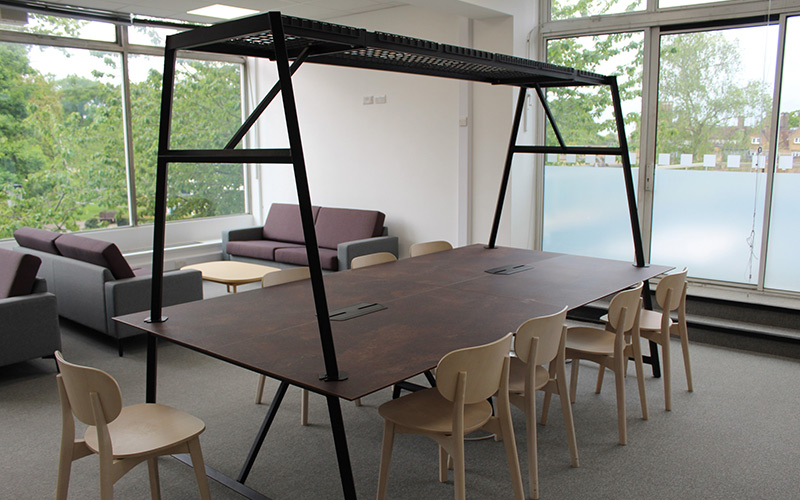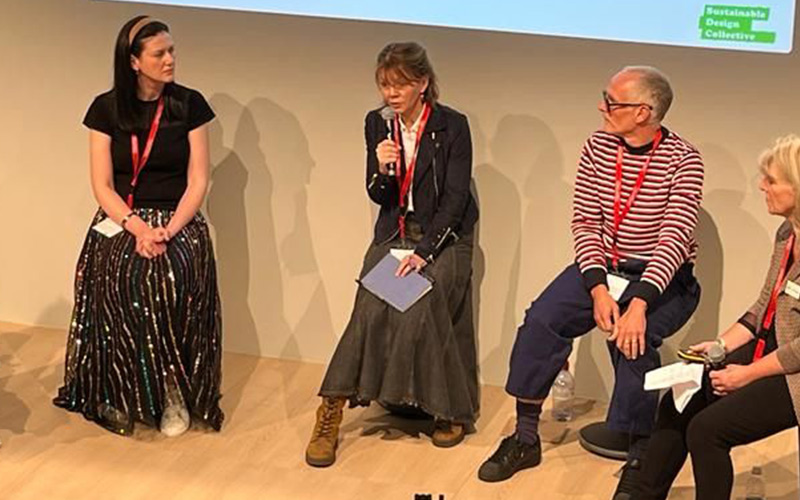In our latest Feature Friday interview we talk with JPA Workspace’s Fiona Edwards about her background, current role, being a member of the Sustainable Design Collective and more…
WOD: Tell us a bit about your background, and how (and why) you became involved with the workspace sector…
FE: “I joined the family business for a few weeks as a stop-gap and to earn some money when I finished my skiing career, and somehow never left it. It was simply so much fun working with my Dad, brother and wider ‘JPA Family’ that I never looked back! It’s been an evolution of roles at a great place to work, we just happened to be in the furniture industry.”
WOD: Can you tell us more about your previous and current roles at JPA?
FE: “I’ve had a go at a wide variety of roles at JPA over the years and responsibilities for customer service, sales, health and safety, standards and certifications. I’ve also driven the vehicles from time to time – just not very well! I finally seem to have found the role that suits me best and enabling me to harness a creativity and passion which I didn’t know existed up until that point – and that’s Head of Sustainability.
It’s a really broad role and I’m lucky enough to have been given free rein over several years to experiment, explore, develop and expand our knowledge. Just this year I have begun a Net Zero Leadership Masters programme at Cambridge which has helped cement all that learning, providing really solid foundations for the future and was also lucky enough to be selected for the Cambridge Institute of Sustainability Leadership Innovation programme earlier this year.
JPA’s sustainable development programme began with an environmental focus on reducing our own and our clients’ furniture waste. Our simple rationale was that everything we use, buy or eat takes carbon to make it, so if we wasted less, we’d also use less carbon. The broad range of circular services that JPA have always offered (furniture repairs, refresh, re-working, re-configuring etc) make this a reality, enabled by owned logistics resources for full control over the entire process. Local operation also enables JPA to offer better service whilst reducing emissions, fleet mileage and, improving efficiency.
We then expanded activity to include community furniture rehoming and furniture recycling and are now also zero to landfill which brings its own range of environmental benefits. Over the last 2-3 years, our environmental programme has evolved into a more rounded sustainable development strategy at the centre of everything we do. It is underpinned by our Race to Zero Pledge and UNSDG, has the unanimous commitment of shareholders and directors, and led by our new leadership team, supported by the strategy, structure and culture needed for long-term success. My work covers a huge spectrum of activity and growing all the time – simply keeping up with latest developments, legislation and products is getting harder, but we’re excited to have got to grips with our scope emissions and ESG reporting.”
WOD: What would you say are the key issues currently most relevant to your client base?
FE: “Rising costs, production delays and materials shortages are key issues for our client base.
Personally, I would argue that decarbonisation and managing our resources better are the greater issues as our planet is at stake. We all have a role to play.
Our challenge is to show clients and stakeholders the long-term, multi-level value that a sustainable approach can bring. Let’s not forget that whilst many of us think sustainability is simply the right thing to do, legislation, consumer pressure and increasingly specific client reporting requirements will make this essential for the business growth and survival of every business.
Covid emphasised that our businesses are only as good or great, as the people we employ so retain and attracting talent are vital for business success. Company purpose over and above profit for profit’s sake is becoming less attractive to the staff we need to attract, and those that can showcase purpose will be able to attract the most valuable asset – enthused, motivated staff. Other benefits of a cohesive sustainable strategy can include reduced costs through better staff retention, less absence, reduced agency fees, higher productivity, better staff health and wellbeing, operational efficiencies, shorter-supply chains, innovative local partnerships, reduced waste, reduced spend and best of all, reduced unnecessary harvest of virgin materials which is stripping our planet – what’s not to love?”
WOD: Which of these issues do you personally find most engageing and challenging?
FE: “I have 2 pressing issues I’m trying to solve at the moment. The first is how to change behaviour in relation to furniture procurement, helping clients to design more responsible workspaces, consume less, buy ‘better’ and use furniture for longer. How do we make it cool to keep furniture in use for longer and get stakeholders on board with this? In theory this should be an easy win as everyone benefits from longer product lifecycles – procurement managers save money, facilities officers reduce waste bills, marketing officers have something to shout about to attract new clients or further investment and sustainability officers can show progress towards the 50% carbon reduction targets needed by 2030. But easier said than done.
With over 1.8m chairs and 1.2million desks going to UK landfill every year our goal is to make the re-use process easier, more rewarding, more satisfying and more systemised for clients and stop the waste.
My second pressing issue is how to standardise the torrent of reporting criteria for products and projects so that readers don’t need a degree to interpret it. We’re still all trying to the reporting process but we’re all using different languages, different measures and different schemes and certifications. On top of all that, we don’t have a way of balancing out expensive certifications with other equally valid criteria and local innovation. Observation – architects, designers and procurement managers generally don’t have the time to decipher complex EPDs, VOC, timber and chemical processes – it’s not always easy to interpret documents presented to them for decision making. We need a simple agreed industry language and set of measures that everyone can understand.”
WOD: Can you provide some examples of recent projects / initiatives you have worked on? And tell us what makes them stand out to you…
FE: “When clients come to JPA with a refurbishment project in mind we establish the agreed reporting outcomes at the beginning of the process. So for example JPA’s successful bid for UCL’s new flagship buildings on the QE2 Olympic Park included evidence of long-term furniture support and maintenance over the previous decade with data illustrating measurable carbon, waste and financial savings.
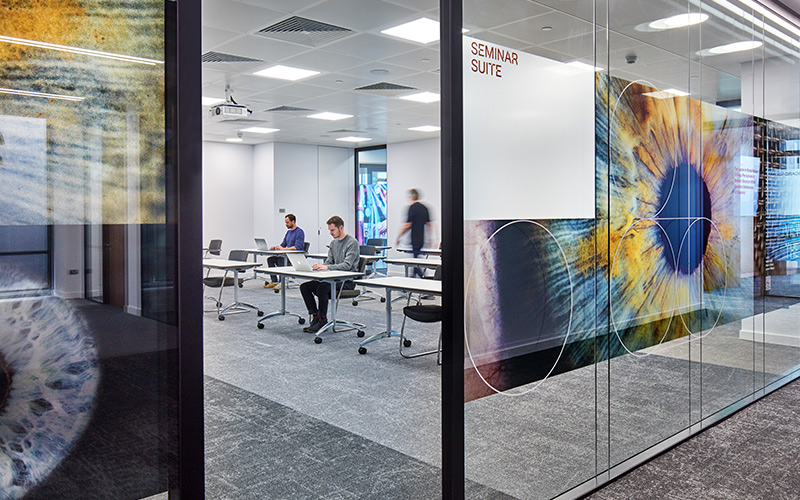
Not only can we take the new furniture up to warranty, but then also in to 2nd and 3rd lives, optimising investment and lifecycle.
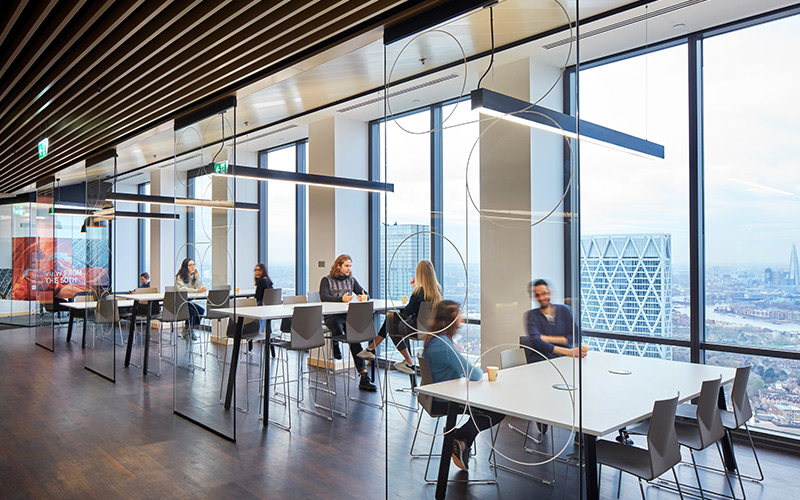
Another seven figure project for Sky Movies in Borehamwood has focused on second life/pre-loved furniture to ensure that minimal new resources are required, minimal additional carbon and minimal destruction of natural habitats. This has also enabled savings of over £250,000 in phase one, and carbon savings of over 60tonnes co2e – alongside carbon neutral installation.

A third project at BRE in Garston has seen the re-use of 240 existing furniture items back into the refurbishment of two complete floors, saving over 7 tonnes co2e and significant spend.
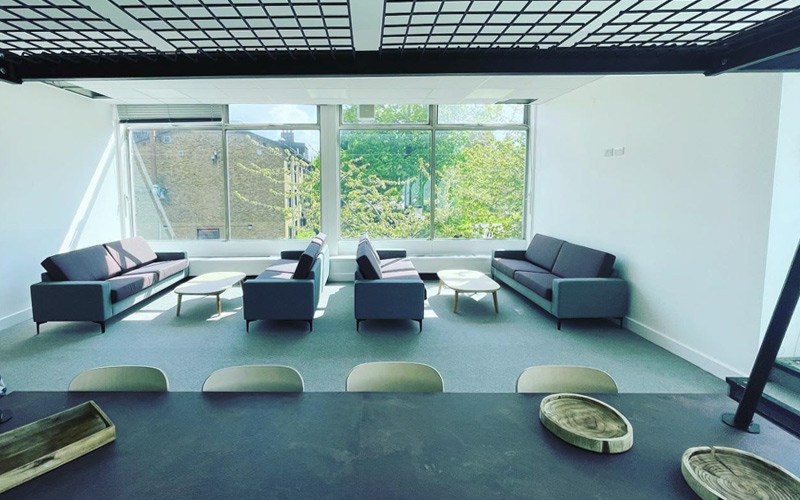
These works also included the re-working of waste materials into a new reception counter showcasing creativity and innovation – it’s a lot of fun.”
